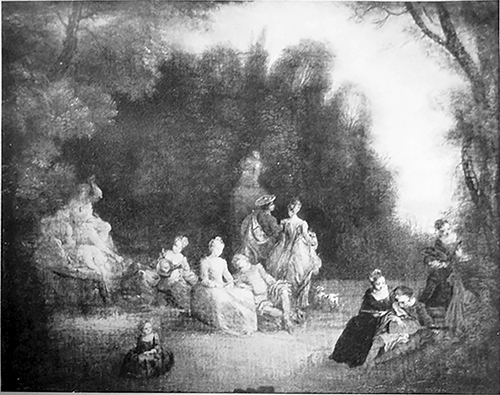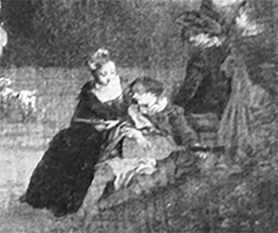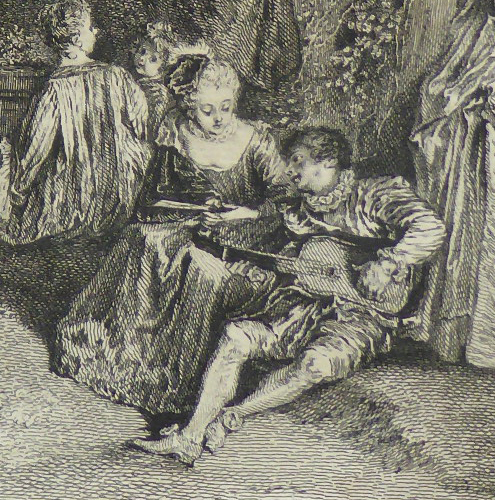
- Home Page
- Accepted
Paintings & Copies - Doubtful
Attributions - Doubtful Textual References
- Alternative
Titles - Collectors &
Museums - Bibliography
- Search Abecedario
- Watteau &
His Circle
X. Paysage animé
Entered July 2019
Whereabouts unknown
Oil on canvas
32 x 41 cm
ALTERNATIVE TITLES
Fête Champêtre
PROVENANCE
London, Sotheby Parke Bernet, April 16, 1980, lot 288: “The Property of a Lady / WATTEAU . . . FÊTE CHAMPÊTRE: a group of elegant figures by a fountain in a wooded landscape 12½in. by 15 3/4 in. 31cm. by 40cm.”
Paris, Hôtel Drouot, sale, June 30, 1989, lot 233: “École d’Antoine WATTEAU / Paysage animé / Toile / 32 x 41 cm 18 000 / 20 000.”
Paris, Hôtel Drouot, January 30, 1991, lot 275. “École d’Antoine WATTEAU / (XVIIIe siècle) / Paysage animé / Toile / 32 x 41 cm 15 000 / 20 000 F.”
REMARKS
At first glance this painting might seem to be a copy after Watteau’s Le Bosquet de Bacchus because so much of the setting – not only the sculpture but also the variety and arrangement of the trees – has its origins in Watteau’s composition, as engraved by Charles Nicolas Cochin. While the figures might seem to reflect Le Bosquet de Bacchus, almost all of them can be traced to Watteau’s inventions, especially as recorded in the Jullienne engravings.
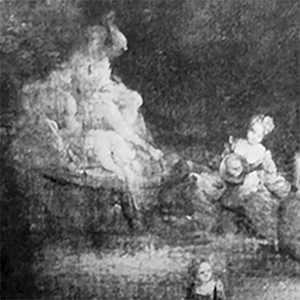
Anonymous French artist, Paysage animé (detail).
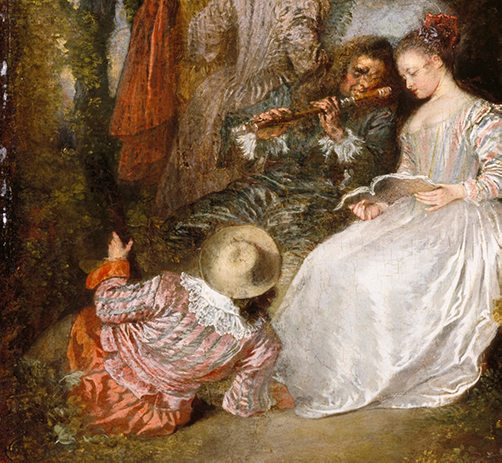
Watteau, L’Accord parfait (detail), Los Angeles County Museum of Art.
The man with a floppy hat, reclining at the foot of the Bacchus statue, comes from a figure in the foreground of L’Accord parfait, now in the Los Angeles County Museum of Art.
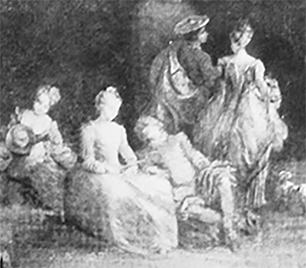
Anonymous French artist, Paysage animé (detail).
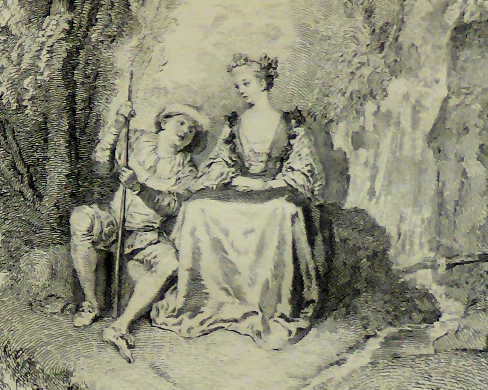
Louis Crepy fils after Watteau, Berger assis, appuyant sur un bâton (detail), engraving.
The man on the ground, legs splayed, leaning on looking up to his female companion, seems to have been derived from the center of a decorative panel by Watteau, but reversed.
Likewise, the guitarist and lady in the right foreground were borrowed from the figures at the right side of Louis Crepy’s engraving after Watteau’s La Perspective.
These multiple borrowings make it clear that this painting was by one of the many pasticheurs working in the wake of Watteau.
